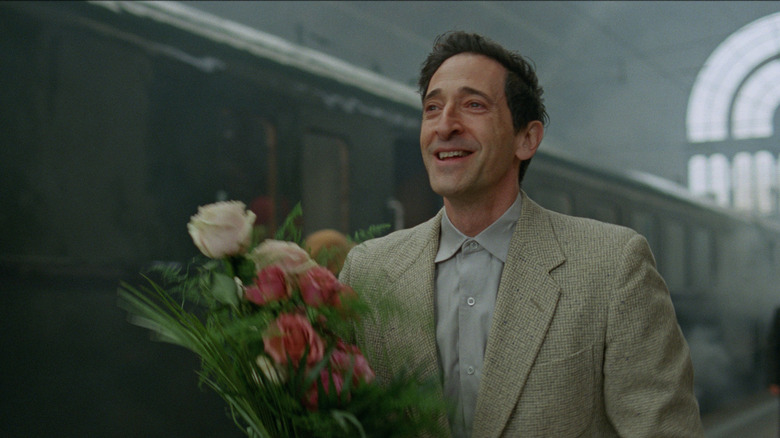
A24
We must be careful how we throw around the word "masterpiece," and yet it seems entirely appropriately for Brady Corbet's towering achievement "The Brutalist." Years in the making (at one point, a completely different cast was announced for the film), Corbert's sprawling, nearly four-hour epic is cut from the same cloth (or perhaps I should say chiseled from the same stone) as great masterpieces like "Citizen Kane," "The Godfather," and more recently, "There Will Be Blood." And like those three movies, "The Brutalist" is a distinctly American masterpiece; a story that reflects the triumphs and horrors of the ethereal thing we call "The American Experience." These are stories of great men bursting with wild, potentially dangerous ambition and how they found a way to encase that ambition in the still-developing America of the past, an ever-changing, ever-growing thing impossible to pin down.
All of Corbert's films are like mock history lessons; biopics for people who never existed, but feel real. His feature debut, the ominous "The Childhood of a Leader," told the story of the youth of a dictator-to-be in early 20th century Europe. Corbert followed that with "Vox Lux," a gloriously deceptive story of an American pop star in the 2000s (the film was released in 2018, but Corbet says he deliberately had the film's timeline end in 2017 "so viewers watching it in 2018 would receive it as a recent history as opposed to a contemporary movie"). Now, with "The Brutalist," Corbet, working with frequent co-writer Mona Fastvold, is telling the story of an immigrant rising up in post-World War II America.
Spanning decades (the film begins in the late 1940s and ends in the 1980s), "The Brutalist" is nothing short of overwhelming; a staggering, brilliant, gorgeous work that demands to be watched large. It feels almost miraculous. Although Corbert's film runs a whopping 215 minutes (complete with a 15-minute intermission), it never drags. Indeed, this might be one of the fastest three-hour-and-thirty-five-minute movies you'll ever see. If Corbet had tacked on another full hour to the film, I don't think I would've complained. Even when the intermission arrived, I found myself hoping it would hurry up and end so I could get back to the movie.
Shot in beautiful VistaVision, a technique that allows Corbet and cinematographer Lol Crawley to create vast frames that feel somehow pulled from history itself, "The Brutalist" is cinematic alchemy, heightened and enhanced by meticulous production design and costuming that feels wholly authentic in showcasing its various time periods, aided by a host of brilliant performances, and encompassed by Daniel Blumberg's pounding, brooding, jazz-infused score — a score Corbet refers to as "both minimalist and maximalist," creating a sense of movement. One of the best pictures of 2024, one of the best pictures of the last 10 years, "The Brutalist" is the type of movie that reminds you why you love movies.
The early scenes of The Brutalist hint at something bigger to come
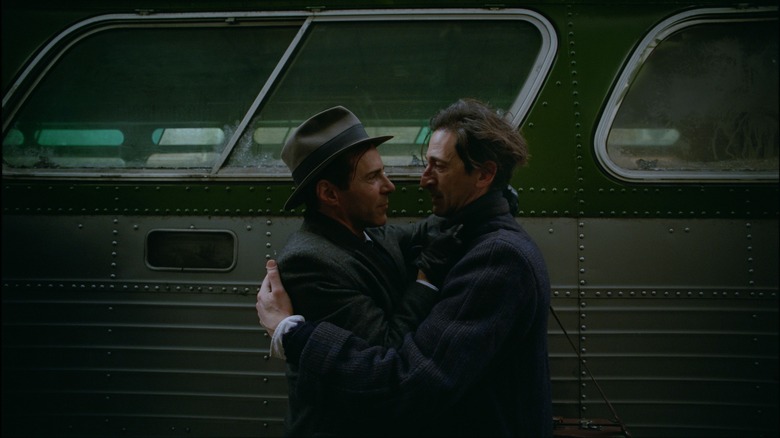
A24
Opening in the late 1940s, "The Brutalist" begins with a rumbling, almost frightening scene as László Tóth, a Hungarian-Jew from Budapest, arrives in America. We follow László as he climbs up from the dark, cramped bowels of a ship and comes onto the deck to catch a glimpse of the Statue of Liberty, which is forebodingly shot upside down as Blumberg's score rings out notes that sound somehow both triumphant and terrifying; this is the land of opportunity, and you should be both awed and afraid. László, played by Adrien Brody adopting a pitch-perfect accent, was a brilliant architect back home. But then the war came, and László ended up in a concentration camp along with his wife, Erzsébet (Felicity Jones). László has managed to escape to America, but Erzsébet and their niece, Zsófia (Raffey Cassidy), are still in Budapest, and László doesn't even know if they're still alive.
László eventually arrives in Philadelphia, where he's informed by his cousin Attila (Alessandro Nivola) that Erzsébet (and Zsófia) are both still living, news that overwhelms the former architect (who, it should be noted, headed to a bordello and failed to be able to perform with a sex worker almost as soon as he stepped off the boat). Attila has an American wife (Emma Laird) and has even Americanized his last name, something he and László both laugh about, although it's clear this change makes László somewhat uncomfortable — the first sign that life in America will come with some caveats. While László was a celebrated architect back home, in Philadelphia, he begins working as a lowly designer in Attila's furniture store. But from this small beginning the seed for something grander will be planted.
Brody, gangly and haunted, moves through these early moments of the film with a combination of both confidence and shyness. He's clearly a man who understands his talents, and yet, his unseen (to us, at least) Holocaust experiences, coupled with the fact that he has to build his life all over again have rendered him hesitant and reluctant. He needs to find something to latch onto, and soon enough, he does, when he's hired by a local rich kid (Joe Alwyn) to build a library as a birthday surprise for a newly minted millionaire industrialist named Harrison Lee Van Buren (Guy Pearce).
The Brutalist never feels predictable, even if we have some idea of where the story is going
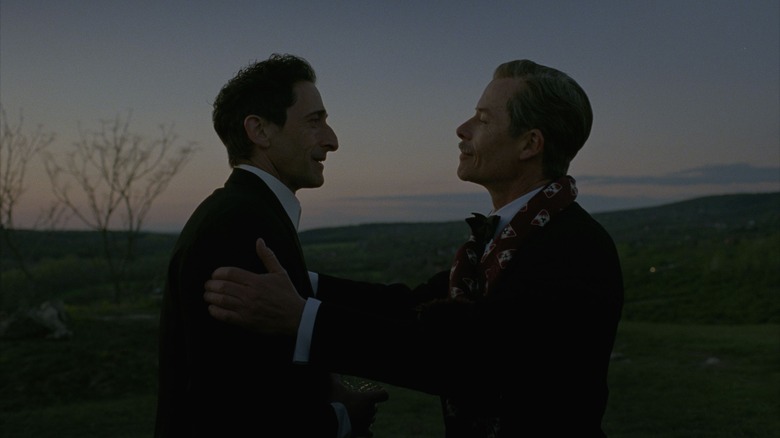
A24
In these early moments of the film, "The Brutalist" sneakily keeps Pearce's Harrison off screen for as long as it can. We know he's rich, we know he's powerful. And when he finally shows up, he's furious. The library was supposed to be a wonderful surprise, but Harrison is instead outraged that László and his crew (which includes a Black man) have mucked up his sprawling home. It's our first sign that Harrison is somewhat detestable ... and then, the film walks that back. After a falling out with Attila and losing his job at the furniture store, László ends up living in a shelter and working a dangerous construction job. He's also developed a heroin habit. And here, at seemingly the lowest point of his life, Harrison tracks László down.
Apologizing for his boorish behavior, Harrison reveals that László's library design, with unique moving bookshelves, has become a phenomenon among high society circles. He pays László the money he owes him, invites him to a party, and then makes László an offer he seemingly can't refuse: the chance to build something massive. Harrison wants László to build what could be technically be called a "community center," but in László's hands, will be something far greater. László dreams up a huge, imposing, brutalist design that will rest perched on a hill and feel like a city unto itself. The building will house a theater, a gym, and even a chapel (something László scoffs at, but agrees to when he's told it will help smooth things over with the locals). Harrison trusts László's skills and more or less gives the architect free reign to do whatever the hell he wants, and what László wants is to create something no one has ever seen before.
Here, we can see Corbet and co-writer Fastvold moving the pieces into place to show what could be seen as both László's rise and fall. The very nature of films tells us that something is bound to go wrong as László's vision expands, but that doesn't mean "The Brutalist" is predictable. Corbet also makes the fascinating decision to keep the structure László is creating something of a mystery. We catch glimpses of it in model form, and see its shape begin to come together on that hill, and yet it feels almost intangible; like László and those around him, we must imagine this visage before we can actually see it.
Adrien Brody, Felicity Jones, and Guy Pearce are excellent in The Brutalist
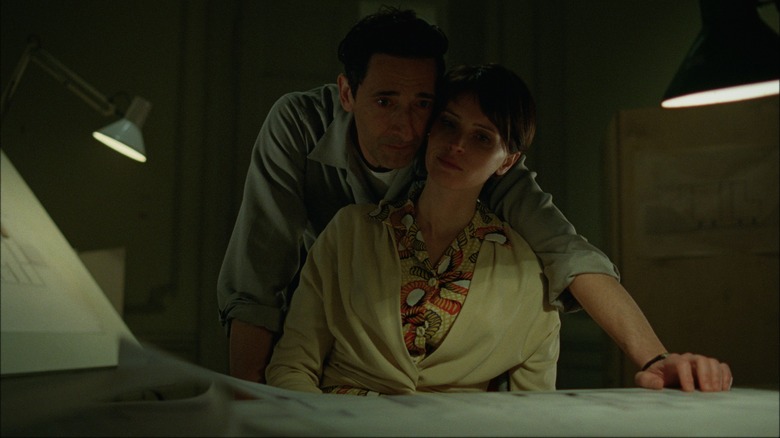
A24
Eventually, with the help of Harrison's connections, Erzsébet and Zsófia arrive in America. Reuniting with Erzsébet was seemingly imperative for László, and yet, when she arrives, he seems strangely distant, especially when he sees that his wife is now in a wheelchair due to osteoporosis, something she intentionally avoided mentioning in letters she sent. The arrival of Erzsébet shifts the film's mood, as everything begins to fall apart around László. Harrison, who started the film shouting angrily at László only to then soften and begin treating him warmly, begins to show signs that he'll only stand for so much and reveals a cruel streak. He may see László as a great artist, but László is also a foreigner of meager means; someone beneath the WASP-ish power of a man like Harrison.
László, meanwhile, begins clashing with seemingly everyone — his workers, his wife, the middle-men Harrison has brought in to help make sure things run smoothly (and don't go too over budget). Darkness and certain doom lingers at the edges of the frame. Time marches on. And László grows more furious and disillusioned at every turn, unable to deal with anyone would dare stand in the way of his vision. "These people do not want us here!" he thunders at Erzsébet at one point, summing his frustrations up by highlighting his otherness. No matter what he does, no matter what he achieves, his thick accent will always make him an outsider. The snobs that are part of the high society that Harrison belongs to smile politely in László's face, but he can hear them whispering about him behind his back.
Brody carries the weight of this on his shoulders, making László wholly complex and believable. His brilliance cannot hide his frustrations and flaws, and his relationship with Erzsébet is somehow both loving and fraught (Jones plays her part delicately, keeping Erzsébet somewhat mysterious). As great as Brody is here, he's matched by Pearce, who does a phenomenal job luring us into Harrison's web. We come to like this guy — until we realize that deep down, Harrison is an obscenely rich man who thrives on power and dominance; a grinning, glad-handing monster.
It's okay to say it: The Brutalist is a masterpiece
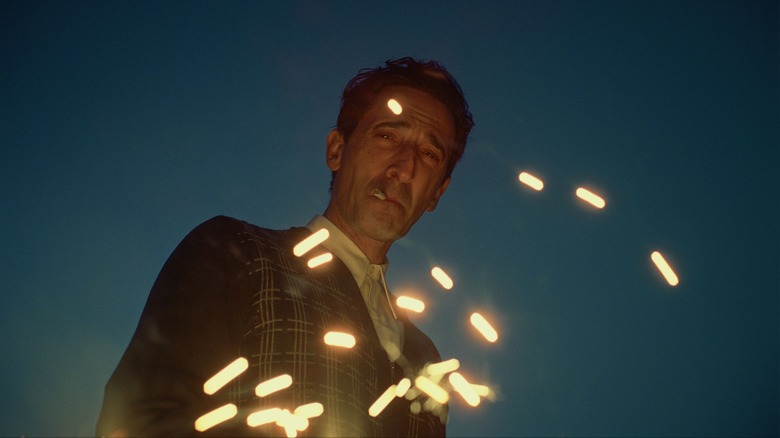
A24
As "The Brutalist" unfolds, we can feel the tides of post-war America shifting. The passage of time is highlighted by the way László's structure rises up out of that hillside like a strange stone flower. In a very centralized story, Corbet encompasses the hopes and dreams of untold numbers of immigrants who came to the shores of this country hoping to thrive, only to clash up against those who came here before them. Corbet also takes us away from America in one of the most haunting passages in the film, as László and Harrison travel to the Italian town of Carrara to look for mable. Cinematographer Lol Crawley shoots the marble quarries in a way that invokes the power and abundance of nature coupled with man's thirst to chip and haul it all away. It's during this part of the film that some of the most troubling story elements arrive, casting the entire film a completely different light, all set against a world of haunting, natural beauty.
By the time "The Brutalist" arrives at its ending, complete with an epilogue that makes you want to go back and rewatch the entire film with new context, I found myself feeling overwhelmed, exhausted, and yet exhilarated. Watching "The Brutalist" has the feeling of reading a great, sprawling work of literature; as you near the final pages, you're both thrilled at having made it through the journey while also wishing there were just a few pages more. I enjoyed Corbet's previous directorial efforts, but nothing in them quite prepared me for the experience that is "The Brutalist," a film that feels like some sort of secret history being written before our eyes. Yes, it's a masterpiece.
/Film Rating: 10 out of 10
"The Brutalist" opens in select theaters on December 20, 2024.


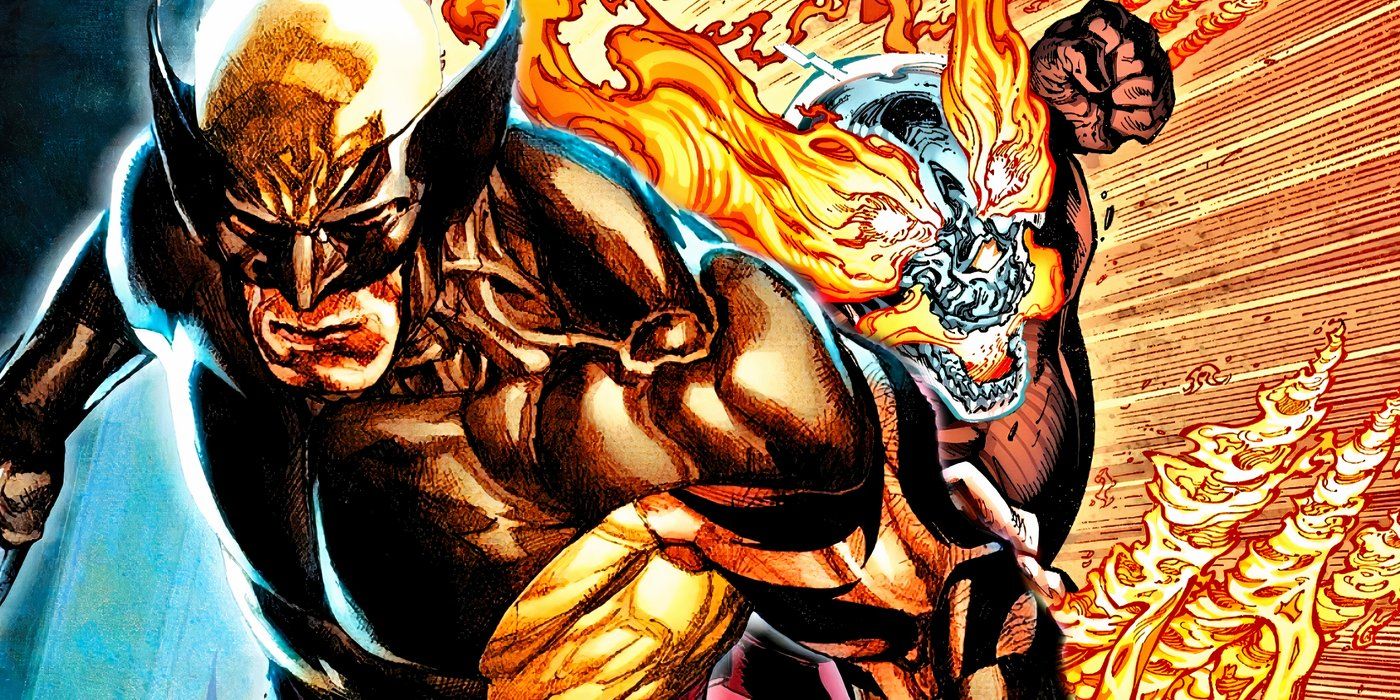






 English (US) ·
English (US) ·